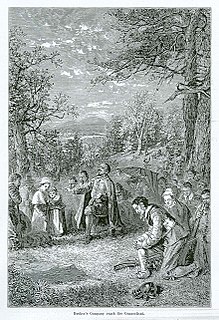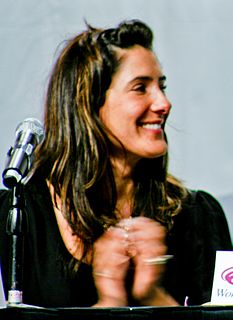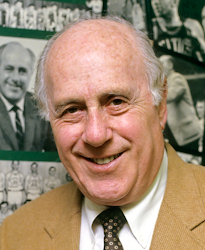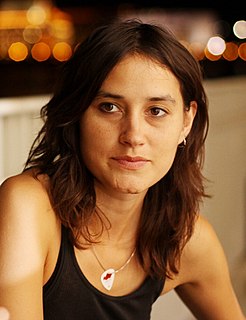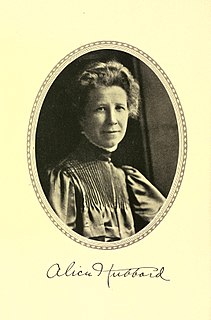A Quote by Frank Deford
If you're a father of a child who dies, it's an experience that never leaves you. It scars you forever and ever and ever. And so when I do any kind of story with somebody who's in the same position as my daughter was, there's no question that something comes out of me and embraces that story in a way that only a father who lost a child could.
Related Quotes
A good story is alive, ever changing and growing as it meets each listener or reader in a spirited and unique encounter, while the moralistic tale is not only dead on arrival, it's already been embalmed. It's safer that way. When a lively story goes dancing out to meet the imagination of a child, the teller loses control over meaning. The child gets to decide what the story means.
When the father is going on in his journey, if the child will not goe on, but stands gaping upon vanity, and when the father calls, he comes not, the onely way is this: the father steps aside behind a bush, and then the child runs and cries, and if he gets his father againe, he forsakes all his trifles, and walkes on more faster and more cheerefully with his father than ever.
We all know of course, that we should never ever ever ever ever ever ever ever ever ever ever ever ever ever ever ever ever ever ever ever ever ever ever ever ever ever ever ever ever ever ever ever ever ever ever ever ever ever ever ever ever ever ever ever ever ever ever ever ever ever ever ever ever ever ever ever fiddle around in any way with electrical equipment. NEVER.
The child in me could not die as it should have died, because according too legends it must find its father again. The old legends knew, perhaps, that in absence the father becomes glorified, deified, eroticized, and this outrage against God the Father has to be atoned for. The human father has to be confronted and recognized as human, as man who created a child and then, by his absence, left the child fatherless and then Godless.
When I'm on stage, I'm not me playing me. I'm somebody else doing me. I could never go on stage and be like, "Hey, I'm Mike Tyson. My mother and father was in the sex industry." That's the politically correct way to say it, but I would really say, "My mother and father were pimps and whores. This is my life." I could never do that as Mike Tyson. Because I'd feel sorry for myself. But if I could be objective about it and be somebody else, portraying Mike Tyson, saying this story, then it's easy sailing.
I think the best thing about music is that someone could be writing a song that's so personal, and it tells so many other people's story at the same time. It kind of exemplifies that we are all kind of on the same wave[length] - it's amazing how comforting somebody else's story can be, because we have experienced their story in some way or another, and I can totally relate, and I get to feel that feeling and the expression of that emotion. I get to feel like as a listener, that somebody understands me, which is pretty incredible.
The baby explodes into an unknown world that is only knowable through some kind of a story – of course that is how we all live, it’s the narrative of our lives, but adoption drops you into the story after it has started. It’s like reading a book with the first few pages missing. It’s like arriving after curtain up. The feeling that something is missing never, ever leaves you – and it can’t, and it shouldn’t, because something is missing.
'East of Eden' is an important story for me. It's about a kid that's misunderstood and feels like he's not loved by his father. It's a very father-son kind of story, and it's not until the end that they sort of make up. I like that because every boy has trouble with his father, so it's very relatable.


